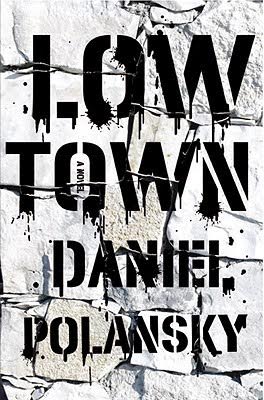Low Town by Daniel Polansky
Fantasy noir? Is there such a thing?
Sure there is, and Daniel Polansky’s Low Town is a superlative example of exactly that.
Don’t worry about the setting, it’s very familiar. London-esque, Victorian perhaps, dark and gritty and emaciated, and full of danger from crime, poverty and cynicism. There are no guns or cars; travel is via walking or carriages, conflicts settled via sword or knife or fists – or magic.
The story swirls around a disgraced investigator, formerly with Black House – the secret police – now a dealer who frequents back alleys and squalid bars for a living, his life full of “cheap violence and expensive drugs.” But when he discovers the body of a young girl who had disappeared days before, his dormant instincts kick in. Knowing that crimes in Low Town are rarely investigated, hetakes it on himself to find justice for little Tara – and uncovers a horror from his past that he’d done his best to forget. But whereas once he may have been willing to walk away, now he’s not going to let the powers that be off the hook, especially when other children go missing. Although no longer an investigator – because he’s no longer an investigator, unconstrained by procedure or politics – he’s become a force to be reckoned with.
This is a taut and gripping whodunit (whatdunit?) that is also strong on worldbuilding and character development. The principle player (his name is apparently “the Watcher”, although I don’t remember him being called that in the narrative) is extremely compelling – smart mouthed, quick witted, cynical, good in a fight, and still in possession of a moral compass, even if it is tarnished and buried deep. Around him, others are also well drawn – Adolphus, the hulking owner of the Staggering Earl, the bar where Watcher lodges; Wren, the street urchin who runs errands for him; the Blue Crane, the sorcerer who is the benevolent guardian of Low Town, and the Watcher’s childhood mentor and protector; Celia, his oldest friend on her way to being named a Sorcerer of First Rank, in line to succeed the Crane; the Duke of Beaconsfield, also known as the Smiling Blade, insolent, entitled, deadly. And there are many, many other “lesser” characters, some who only appear in a single scene, who are still indelibly crafted and unforgettable.
The environment is lean and dark, full of shadows, swathed in my mind’s eye in gradations of greys, never fully black or white. Even the Duke’s opulent palace seems to be devoid of color and vitality (that could just be my take on it, but it feels just). Flashbacks are equally dark, full of war and blood, rain and cold. The season is winter, with snow and cold. Bleak. Hard.
Magic exists, but feels impersonal and mean. Despite the indifference of the authorities and the perpetual squalor, there is an even deeper communal fear – a return of the killing plague that decimated the population years ago; only the wards held in place by the Crane keep the plague at bay. Life now may not be good, but it’s better than it was in the plague years. And occasionally, just occasionally, there are glimpses of humanity in the cracks and around the corners of even the meanest streets of Low Town.
This is a good one, folks. Highly, highly recommended.
—Sharon Browning

